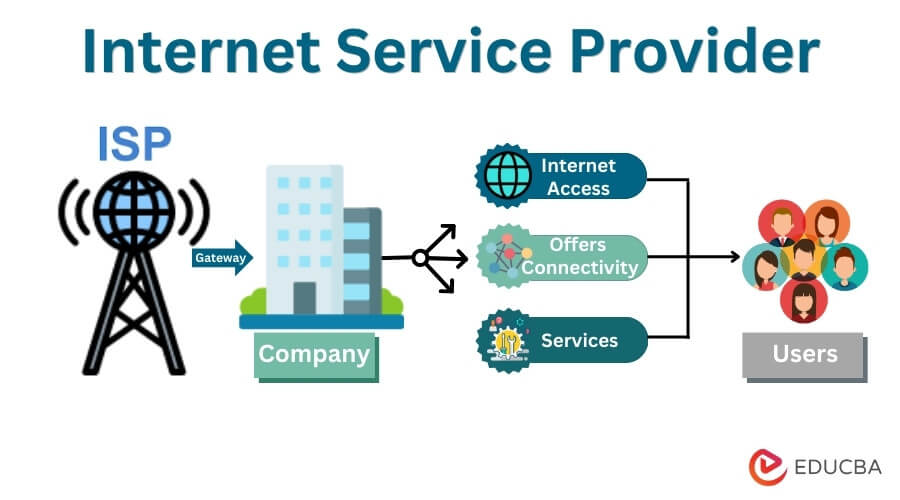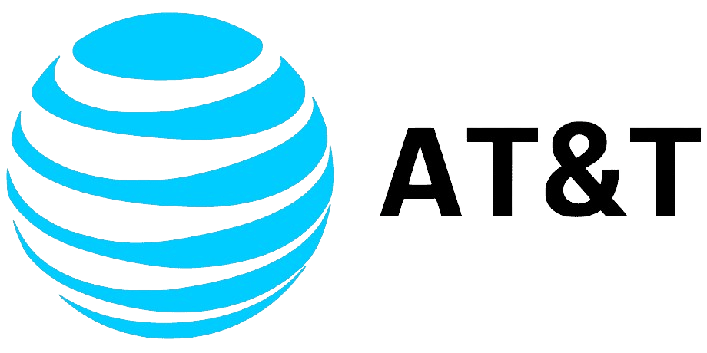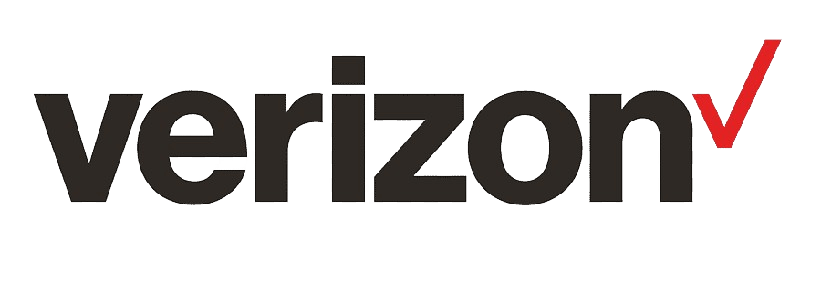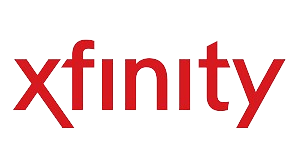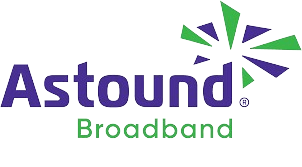Introduction to Internet Service Provider
In our fast-paced digital age, the seamless flow of information, communication, and entertainment depends heavily on Internet service providers (ISPs). These invisible yet omnipresent entities are vital in connecting individuals and businesses to the vast expanse of the internet, enabling a world where geographical distances disappear in the blink of an eye.
From the days of dial-up connections to today’s high-speed broadband networks, the journey of ISPs has been marked by innovation, challenges, and transformative technological leaps.
Join us on a journey through the digital highways as we unravel the mysteries behind the providers that keep us connected in the virtual realm.
Table of Contents
Key Takeaways
- ISPs serve as the gateway to the internet, offering diverse connection types like broadband, fiber-optic, and wireless, crucial for individuals and businesses.
- They provide network access points and additional services like email, hosting, and VPNs, catering to a spectrum of user needs.
- Factors like speed, reliability, pricing, and support are pivotal when selecting an ISP, impacting the quality of online experiences.
Types of Internet Service
Here’s a brief explanation of each type of internet service.
- Satellite Internet: Utilizing satellites in orbit, this service provides internet access to remote areas lacking traditional connections. Signals are transmitted between the user’s dish and the satellite, offering comprehensive coverage but sometimes with latency issues.
- DSL Internet: DSL (Digital Subscriber Line) uses telephone lines to deliver internet. It’s widely available and offers decent speeds, but performance may vary based on distance from the provider’s central hub.
- Cable Internet: Delivered through coaxial cables, cable internet provides high-speed connections, commonly faster than DSL. Bandwidth may fluctuate depending on local usage.
- Fiber Internet: The fastest among consumer options, fiber-optic internet transmits data via light signals through glass fibers. It offers unparalleled speed and reliability but might need more availability in certain areas.
- Fixed Wireless Internet: This service uses radio signals to connect users to the internet, bypassing physical cables. It’s ideal for rural areas and can provide decent speeds, but obstructions or weather conditions might affect the signal quality.
- 5G Internet: Leveraging fifth-generation wireless technology, 5G promises ultra-fast speeds and low latency. It utilizes high-frequency radio waves, but coverage is expanding, primarily available in urban areas. Its potential for high-speed, low-latency connectivity fuels innovations in various industries.
Top-Rated ISPs
Here are the list of top-rated Internet Service Provider:
1. Viasat
Viasat provides satellite internet to rural and remote areas without cable or fiber-optic connections.
Price: Plan Starting At $64.99/month to $249.99/month
Connection Type: Satellite
Bundles: internet, TV, and phone services
Download Speed: 12 Mbps to 100 Mbps
Reviews and Ratings: 3.10 Some users appreciate its availability in rural areas where other high-speed options might not be accessible. However, there have been complaints about data caps, latency issues, and slower speeds during peak times.
2. AT&T
AT&T is a major telecommunications company providing internet, TV, and phone services across the United States. With offerings like DSL, fiber-optic, and fixed wireless connections, AT&T caters to diverse connectivity needs.
Price: $55.00 and Up
Connection Type: Fiber
Bundles: internet, TV, and phone options
Download Speed: 300 Mbps – 5 Gbps
Reviews and Ratings: 4.3
3. Verizon
Verizon is a leading telecommunications company offering various services, including wireless communication, internet, TV, and phone. In the realm of internet services, Verizon is renowned for its high-speed fiber-optic network known as Verizon Fios. Fios provides fast and reliable internet connections, with different plans to accommodate varying user needs.
Price: $49.99 and Up
Connection Type: Fiber
Bundles: internet, TV, and phone
Download Speed: 300 Mbps – 940 Mbps
Reviews and Ratings: 4.3 Reviews and ratings for Verizon Fios can vary by location and individual experiences.=
4. Xfinity
Xfinity, a brand owned by Comcast Corporation, provides cable internet services throughout the United States with different subscription plans tailored to meet the needs of various customers.
Price: $19.99 and Up
Connection Type: Fiber, Cable
Bundles: internet, TV, and phone options
Download Speed: 50 Mbps – 1,200 Mbps
Reviews and Ratings: 4.2
5. Cox
Cox Communications is a significant broadband communications and entertainment company offering internet, TV, and phone services to residential and business customers in the United States.
Price: $29.99 and Up
Connection Type: Fiber, Cable
Bundles: Internet, TV, Phone or Automation/Security
Download Speed: 25 Mbps – 940 Mbps
Reviews and Ratings: 4.0
6. Suddenlink
Suddenlink provides internet, TV, and phone services serving various regions across the United States. Acquired by Altice USA, Suddenlink is known for offering high-speed internet services to residential and business customers.
Price: $19.99 and Up
Connection Type: Fiber, Cable
Bundles: Internet, TV, or Phone
Download Speed: 20 Mbps – 940 Mbps
Reviews and Ratings: 3.2
7. Optimum
Optimum, a brand of Altice USA, provides a range of telecommunications services, including internet, TV, and phone. It serves customers in select areas, primarily in the northeastern United States.
Price: $24.95 and Up
Connection Type: cable infrastructure
Bundles: Internet, TV, or Phone
Download Speed: 10 Mbps – 5,000 Mbps
Reviews and Ratings: 3.3
8. Spectrum
Spectrum, a brand of Charter Communications, provides internet, TV, and phone services across the US, prioritizing reliable internet for homes and businesses.
Price: $49.99 and Up
Connection Type: Hybrid-Fiber Coax
Bundles: internet, TV, and phone options
Download Speed: 300 Mbps – 1 Gbps
Reviews and Ratings: 3.9
9. Mediacom
Mediacom is a cable television and communications provider that offers internet, TV, and phone services to residential and business customers in various states across the United States.
Price: $29.99 and Up
Connection Type: Cable
Bundles: Internet, TV, or Phone
Download Speed: 60 Mbps – 1000 Mbps
Reviews and Ratings: 3.9
10. Astound
Astound, a brand under Wave Broadband, is a regional internet, TV, and phone provider. Wave Broadband serves communities in California, Oregon, and Washington, delivering telecommunications services.
Price: $25.99 and Up
Connection Type: fiber-optic and cable
Bundles: internet, TV, and phone
Download Speed: 250 Mbps – 940 Mbps
Reviews and Ratings: 3.7
11. CenturyLink
CenturyLink is a telecommunications company that provides services to residential and business customers across the United States. They operate in various states and offer a range of internet plans.
Price: $30.00 and Up
Connection Type: Digital Subscriber Line (DSL) and fiber-optic connections
Bundles: Internet, Phone
Download Speed: 100 Mbps – 940 Mbps
Reviews and Ratings: 3.6
12. Frontier
Frontier Communications provides telecommunications services, including internet, TV, and phone, to residential and business customers in various regions of the United States, both urban and rural.
Price: $49.99 and Up
Connection Type: Digital Subscriber Line (DSL) and fiber-optic connections
Bundles: Internet, TV, or Phone
Download Speed: Up to 5,000 Mbps
Reviews and Ratings: 3.6
13. HughesNet
HughesNet provides high-speed internet access to residential and business customers in rural and remote areas with limited cable or DSL services.
Price: $49.99 and Up
Connection Type: Satellite
Bundles: standalone satellite internet services
Download Speed: 15 Mbps – 50 Mbps
Reviews and Ratings: 3.6
How to Choose the Best Internet Service Provider?
When choosing an internet service provider, there are several factors to consider. Here are some of the most important ones:
- Speed Requirements: Firstly, assess your internet usage needs. Streaming, online gaming, or basic web browsing require varying speed levels. Choose a plan that fulfills your specific requirements.
- Connection Type: Understand the types of internet connections available in your area. Common types include DSL, cable, fiber-optic, satellite, and fixed wireless. Each has its advantages and limitations.
- Availability: Check which ISPs operate in your area. Only some providers offer services in some locations. Use online tools or contact ISPs to confirm availability in your area.
- Data Limits and Throttling: Some ISPs impose data caps, limiting the amount of data you can use each month. Additionally, some providers may engage in throttling during peak hours. Be aware of these limitations and choose a plan that aligns with your data usage habits.
- Contract Terms: Review the terms of service and contract details. Some ISPs may require long-term contracts, while others offer more flexible options. Consider contract lengths, early termination fees, and any other contractual obligations.
- Price and Value: Compare the pricing of different plans. Be cautious of introductory rates that may increase after a certain period. Consider the overall value, speed, reliability, and customer service.
- Customer Service and Support: Research the reputation of ISPs for customer service and technical support. Read customer reviews and consider factors like responsiveness, reliability, and the availability of support channels.
- Equipment Costs: Check whether the ISP provides the necessary equipment (such as modems and routers) or if you need to purchase or rent them separately—factor in any associated costs when comparing plans.
- Bundle Options: Some ISPs offer bundles that combine internet, TV, and phone services. If you need multiple services, bundling may provide cost savings.
- Reliability and Uptime: Investigate the ISP’s reliability and uptime. Look for reviews or reports on the provider’s service stability and whether they have a history of frequent outages.
- Security Features: Consider the security features provided by the ISP. Some ISPs offer built-in security features, such as antivirus software or firewalls, to protect your connection.
- Future Expansion and Technology: Check if the ISP is investing in and adopting new technologies. Fiber-optic networks, for example, provide faster and more reliable connections. Consider the long-term prospects of the ISP’s infrastructure.
Importance of Internet Speed for Online Gaming
Here are key reasons why internet speed matters for online gaming:
- Low Latency (Ping): Latency, often measured in milliseconds (ms), refers to the time data travels from your device to the game server and back. Lower latency results in quicker response times. This is particularly critical in fast-paced online games where split-second decisions matter.
- Reduced Lag: Lag in gaming occurs when there is a delay between player actions and screen reactions. Faster internet speeds minimize lag, providing a more enjoyable experience.
- Smooth Gameplay: High internet speeds contribute to smoother gameplay by ensuring that game data, including graphics, textures, and updates, is quickly and consistently delivered. This helps prevent stuttering, freezing, or disruptions during gameplay.
- Large Data Transfers: Online games often involve large data transfers, especially in graphics-intensive and open-world games. A high-speed connection ensures these data transfers occur quickly, reducing loading times and maintaining a seamless gaming experience.
- Streaming and Multiplayer: Many modern games involve online multiplayer modes or require continuous content streaming. Faster internet speeds support smooth multiplayer interactions, reduce buffering in streaming, and enhance overall game performance.
- Download and Update Speeds: Quick download speeds are essential for efficiently obtaining game updates, patches, or new game releases. Slow download speeds can result in longer wait times and delayed access to new content.
- Consistent Connection: Online gaming requires a stable and consistent internet connection to prevent disconnections or dropped connections during gameplay. High-speed and reliable connections contribute to a more stable gaming environment.
- Competitive Advantage: In competitive gaming, every advantage matters. Players with faster internet speeds often have a competitive edge, especially when quick reactions and precise timing are crucial.
- Quality of Service (QoS): Some ISPs offer Quality of Service features that prioritize gaming traffic, ensuring that game data receives preferential treatment over other internet activities. This helps maintain a stable connection during gaming sessions.
- Voice Chat and Communication: Online gaming often involves voice chat and communication with teammates or opponents. Faster internet speeds support clear and real-time communication, enhancing the overall multiplayer experience.
- VR and AR Gaming: Virtual Reality (VR) and Augmented Reality (AR) gaming applications demand higher internet speeds due to the increased data requirements for immersive experiences. Faster speeds create a more realistic and enjoyable VR or AR gaming environment.
Challenges and Options for Rural Internet Access
Some of the key challenges include:
- Limited Infrastructure: Rural regions often need more infrastructure for high-speed internet, such as fiber-optic cables or cable lines, making it challenging for ISPs to extend their services.
- Distance from Central Hubs: Remote locations are often far from central network hubs, resulting in weaker signals and slower speeds due to signal degradation over long distances.
- Cost of Expansion: Expanding internet infrastructure to rural areas can be expensive for ISPs, as the cost per household can be higher than in densely populated urban areas.
- Terrain and Geography: Obstructed signals due to geographic features like mountains, valleys, and forests make laying cables or establishing wireless connections difficult, further complicating access.
- Low Population Density: With fewer potential customers spread across a larger area, ISPs may need help to justify the investment in infrastructure expansion.
Options and solutions to improve rural internet access
- Satellite Internet: Satellite internet services, Like those provided by companies such as HughesNet or Viasat, satellite internet services can reach remote areas where traditional cable or DSL isn’t available. However, they may have limitations regarding latency and data caps.
- Fixed Wireless Access: Fixed wireless providers transmit internet signals from towers to receivers installed in homes or businesses. It’s an option for areas where laying cables could be more practical.
- Government Funding and Grants: Governments sometimes offer funding or grants to incentivize ISPs to expand infrastructure into underserved rural areas. Programs like the USDA’s Rural Utilities Service or FCC initiatives aim to support broadband deployment in rural regions.
- Local Co-ops and Initiatives: Some rural communities form cooperatives or initiate community-driven projects to establish internet services. These efforts can involve building local networks or partnering with ISPs for expansion.
- 5G Technology and Innovation: Advancements in 5G technology might bring opportunities for improved rural connectivity. However, the deployment of 5G networks in remote areas is still evolving.
- Fiber Optic Expansion: Long-term solutions involve laying fiber-optic cables providing reliable high-speed internet. However, this is an expensive and time-consuming process.
- Hybrid Solutions: A combination of technologies, such as satellite, fixed wireless, and traditional cable, might be necessary to address the unique challenges of different rural areas.
Conclusion
Selecting the correct Internet Service Provider (ISP) is essential for a smooth online experience. Considering factors like speed, reliability, and customer service is essential. Rural areas might encounter unique challenges, but emerging technologies and government initiatives provide possible solutions. Whether you live in an urban or remote area, choosing an ISP that meets your specific requirements will guarantee efficient connectivity and an improved digital lifestyle.
Recommended Articles
We hope that this EDUCBA information on “Internet service provider” was beneficial to you. You can view EDUCBA’s recommended articles for more information.
